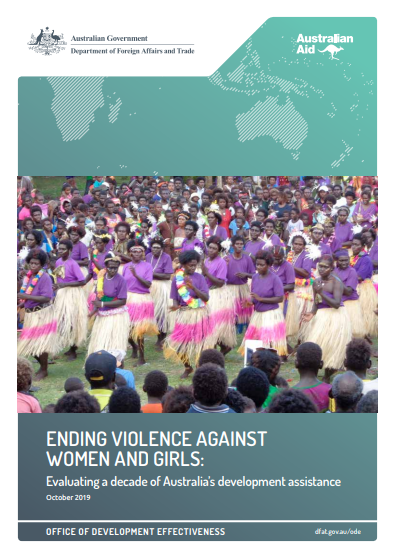Femili PNG has been noted in a recent Australian Government report as ‘best practice’ in its case management procedures and coordination of resources for survivors of family and sexual violence (FSV). The report, written by the Australian Government’s Office of Development Effectiveness, seeks to evaluate a decade of Australia’s development assistance program and the work of organisations in eliminating violence against women and girls.

Case management for survivors of FSV is a critical component of immediate response. Services and resources, such as law enforcement, hospitals, and counselling services, are typically required to make a formal complaint in response to FSV. These providers have limited insight into survivors’ situations and the overall process can be complex, frustrating, and time-consuming. Case-management seeks to assist survivors who may not have the resources to navigate the system:
Femili PNG’s innovative approach focuses on survivors rather than services. Its effectiveness is predicated on strong partnerships with existing services, additional resources and/or support provided as needed. This allows it to successfully take on high-risk cases that would normally fall through bureaucratic cracks. Femili PNG has been referred to as ‘The glue between the police force, courts, health systems and women’s shelters.’
(ODE Report, p 50)
Published in October 2019, the report evaluated the Australian aid and development assistance program and an assessment of the status of the goals set out in the previous 2008 ODE report. The 2019 report provides an evaluation of the gains made over the past decade and the recommendations for the next for the purpose of the elimination of violence against women and girls, with case studies in Fiji, PNG, Solomon Islands, Timor-Leste and Vanuatu.
The evaluation outlined key recommendations for the development assistance program going forward, including:
- Recognising the fragility of gains made and strengthening them by maintaining funding and investment in both local and regional programs
- Support and invest in the development of legislation for the elimination of violence against women and girls
- Continue to support organisations providing care for survivors and seek to improve quality and accessibility of services
- Expand work on prevention though long-term funding, coordinating at a national and regional level, and improving research capacity


